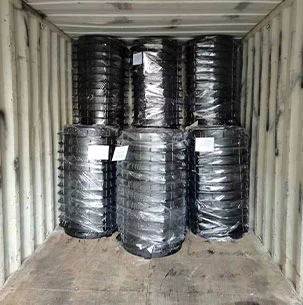
Nov . 17, 2024 16:22 Back to list
Coal Fired Steam Boiler for Efficient Energy Generation and Cost Savings
The Role of Coal in Steam Boiler Technology
Coal has been a cornerstone of energy production for centuries, particularly in the steam boiler industry. Steam boilers, which convert water into steam using heat generated from burning coal, have been essential in various applications, including electricity generation, industrial processes, and heating systems. Despite the rise of alternative energy sources, coal remains a significant player in the steam boiler market due to its abundance and cost-effectiveness.
Historically, the use of coal in steam boilers dates back to the industrial revolution when steam power was the driving force behind industries such as textile manufacturing and transportation. The basic principle of a steam boiler involves burning coal to produce heat, which then converts water into steam. This steam can be used either directly for heating or to drive turbines that generate electricity.
The Role of Coal in Steam Boiler Technology
Modern coal-fired boilers are designed for efficiency and environmental compliance. They incorporate advanced technologies like fluidized bed combustion, which allows for more complete burning of coal and minimizes harmful emissions. By maintaining optimal combustion temperatures and using various emissions control systems, including electrostatic precipitators and scrubbers, these boilers can significantly reduce the release of pollutants, such as sulfur dioxide and particulate matter.
coal steam boiler

However, the environmental impact of coal still poses challenges. Coal combustion is a significant source of greenhouse gas emissions, particularly carbon dioxide. As concerns about climate change grow, the steam boiler industry is under pressure to adopt cleaner technologies and explore alternative fuel sources. This has led to an increased interest in biomass and natural gas as potential replacements for coal in steam production.
In recent years, many countries have implemented stricter regulations regarding emissions and have set targets for transitioning to cleaner energy sources. This shift is prompting boiler manufacturers to innovate and invest in dual-fuel systems, allowing for the flexibility to switch between coal and greener fuels as needed. These systems not only provide a transition pathway for existing coal infrastructure but also enable industries to meet regulatory requirements without significant capital investment.
Despite the challenges and evolving regulatory landscape, coal-fired steam boilers continue to play a crucial role in the global energy mix. They provide a reliable source of power, particularly in regions where access to cleaner energy alternatives is limited. The industry is actively seeking solutions to minimize the environmental footprint of coal utilization, focusing on improving efficiency and integrating advanced emissions control technologies.
In conclusion, while coal may face criticism in the context of sustainability and environmental responsibility, its role in steam boiler technology remains significant. The ongoing development of cleaner and more efficient coal-burning systems ensures that steam boilers can continue to meet energy demands while addressing the environmental concerns associated with coal consumption. As the world transitions toward more sustainable energy practices, the steam boiler industry will undoubtedly evolve, balancing the need for reliable energy with the imperative to protect our planet.
-
High-Efficiency Commercial Oil Fired Steam Boiler for Industry
NewsJul.30,2025
-
High-Efficiency Biomass Fired Thermal Oil Boiler Solutions
NewsJul.30,2025
-
High Efficiency Gas Fired Thermal Oil Boiler for Industrial Heating
NewsJul.29,2025
-
High-Efficiency Gas Fired Hot Water Boiler for Sale – Reliable & Affordable
NewsJul.29,2025
-
High Efficiency Biomass Fired Hot Water Boiler for Industrial and Commercial Use
NewsJul.29,2025
-
High-Efficiency Biomass Fired Hot Water Boiler for Industrial Use
NewsJul.28,2025
Related PRODUCTS






















